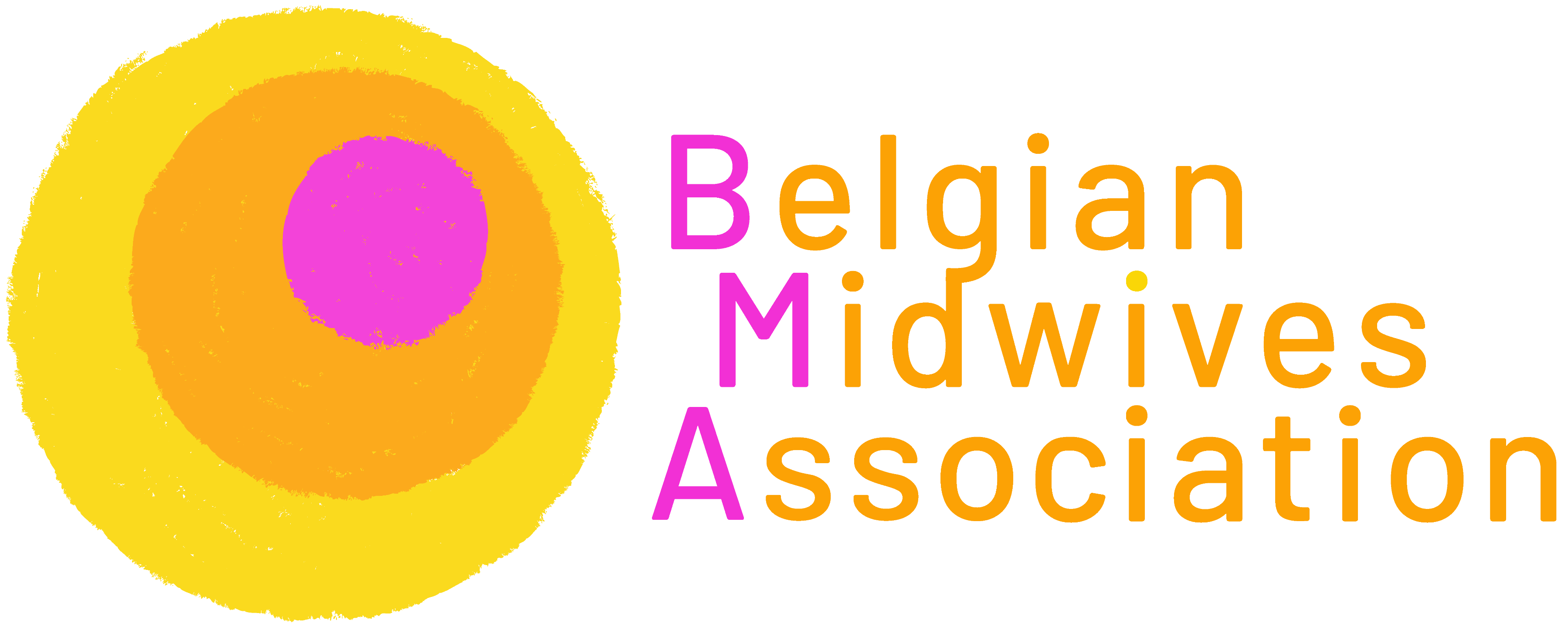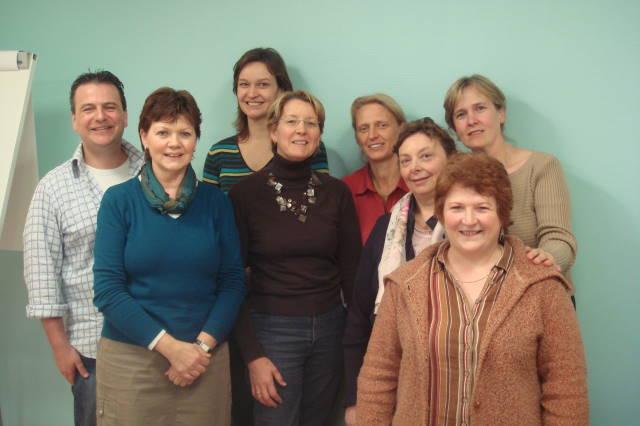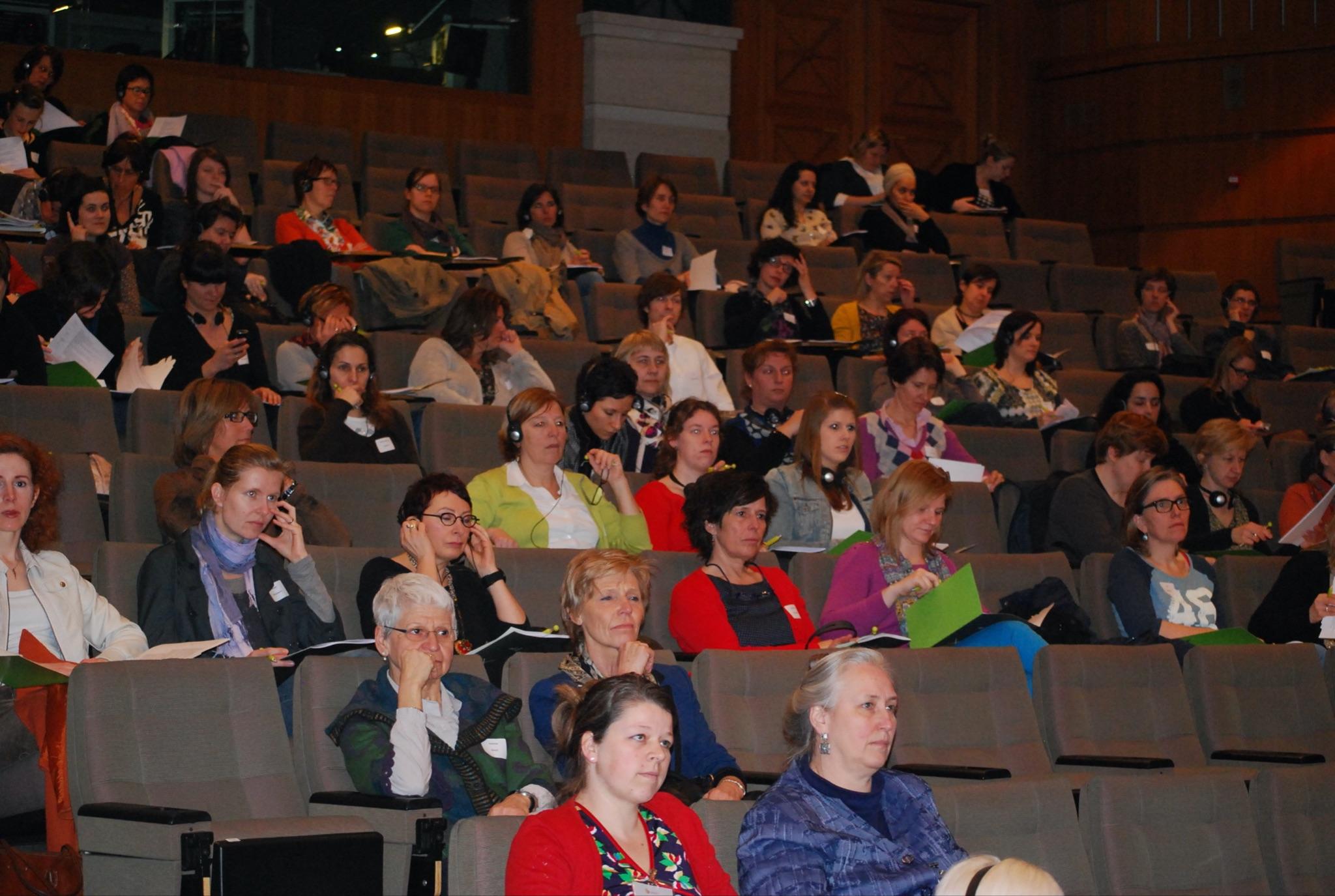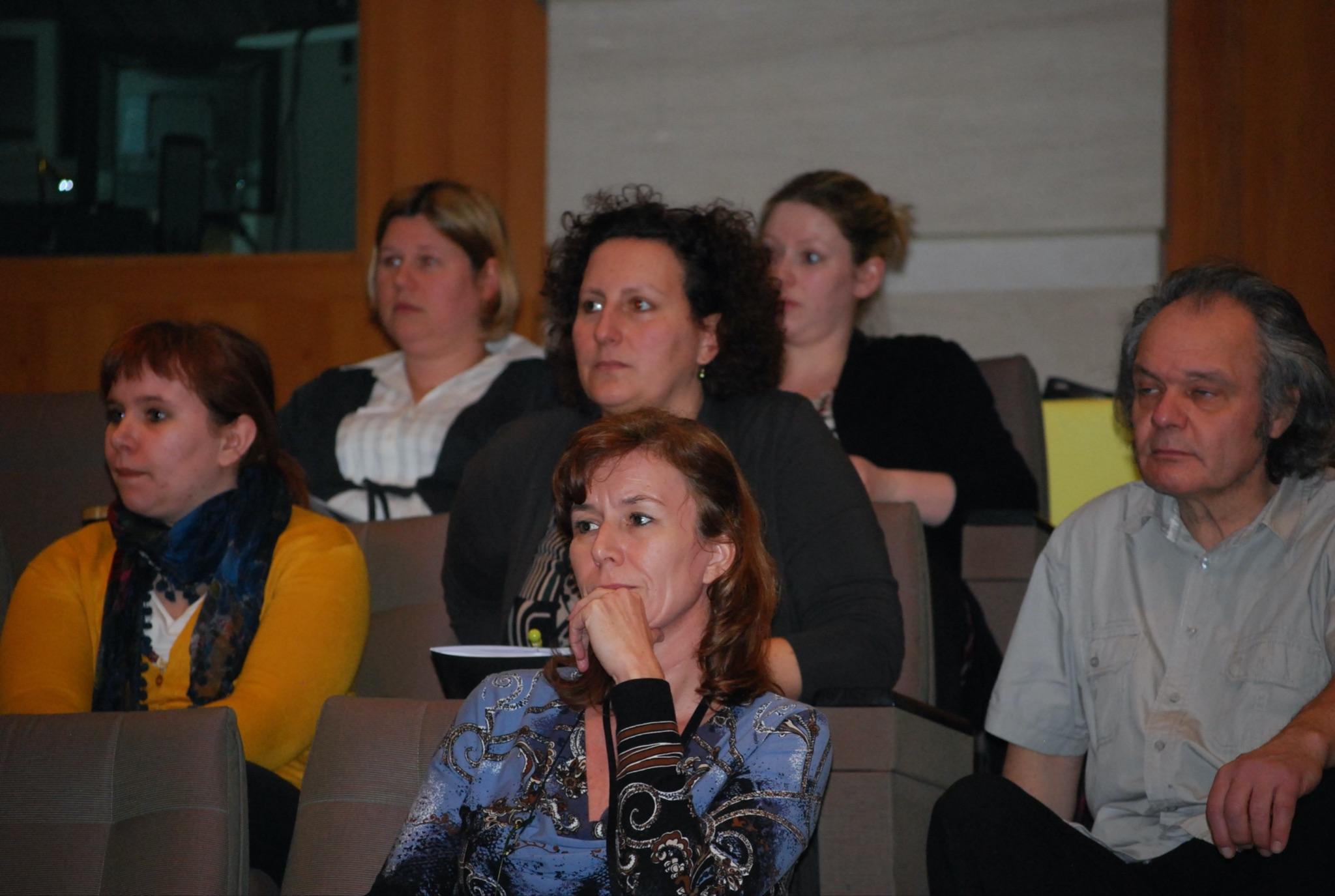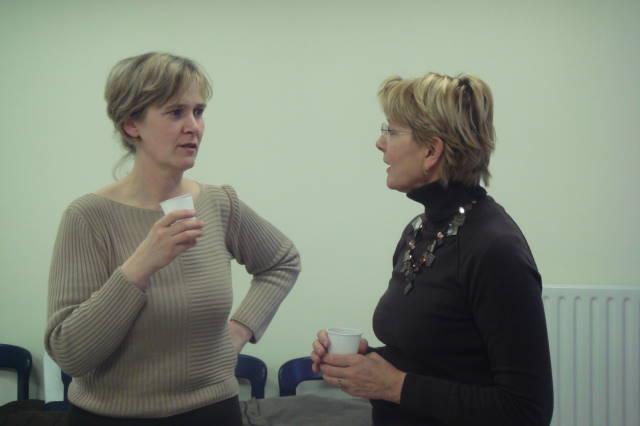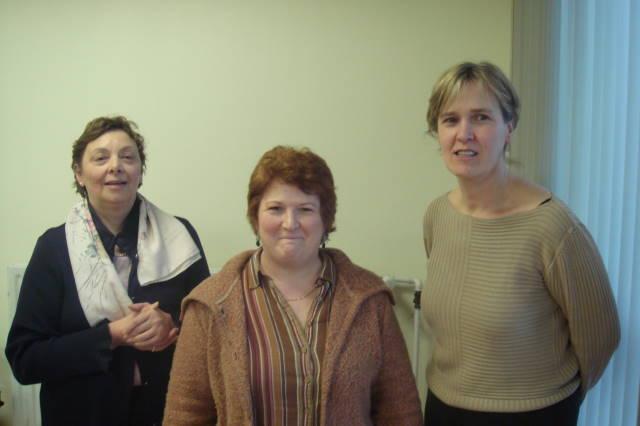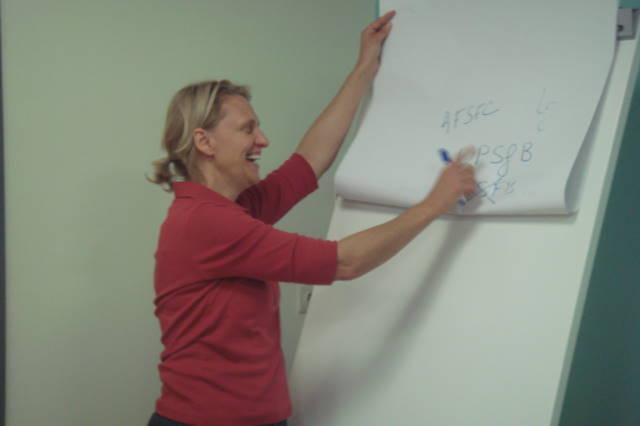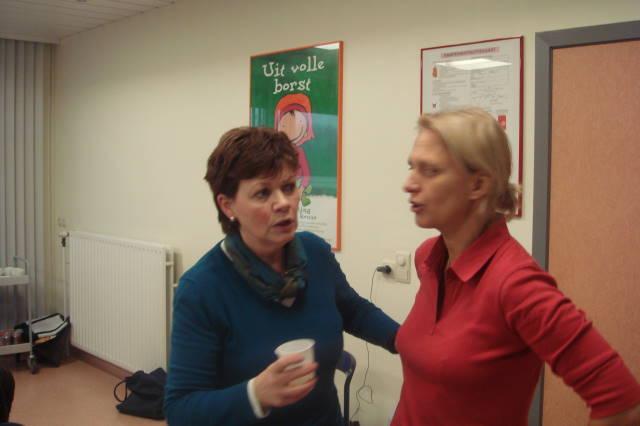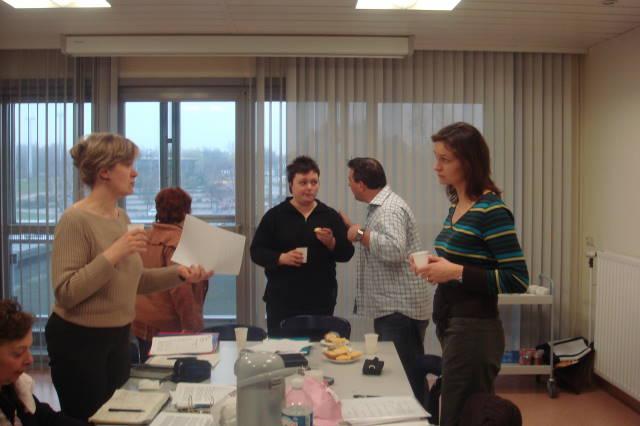• Who we are
Birth of BMA
The Belgian Midwives Associations team, Brussels 2008
Belgian midwives have been working together for many years ! Since 1995, they have been joining forces within the Belgian Midwives Advisory Committee and then within the Federal Council. In 2008, they decided to collaborate at an associative level in order to improve their visibility on the international scene.
The BMA was created to work on three main axes :
• developing Belgian practice to work on our full scope,
• promotion and recognition of normal childbirth,
• and supporting the profession as defined by the ICM.

• Our members
Board of directors
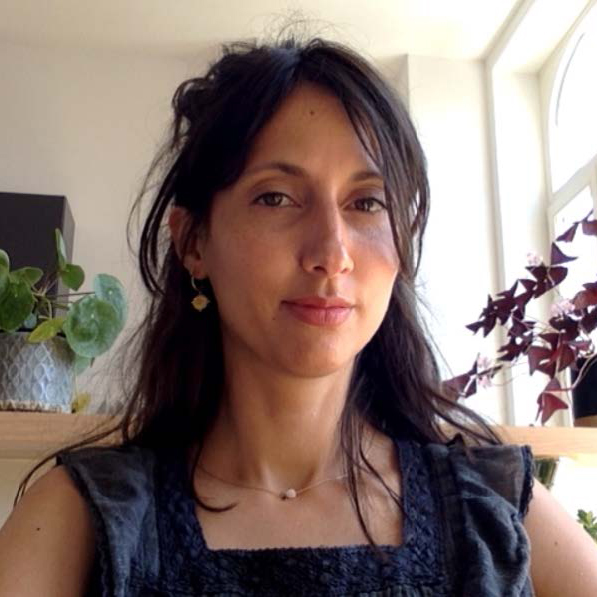
Clémence Vital Durand
President

Alexandra Denys
Vice-president
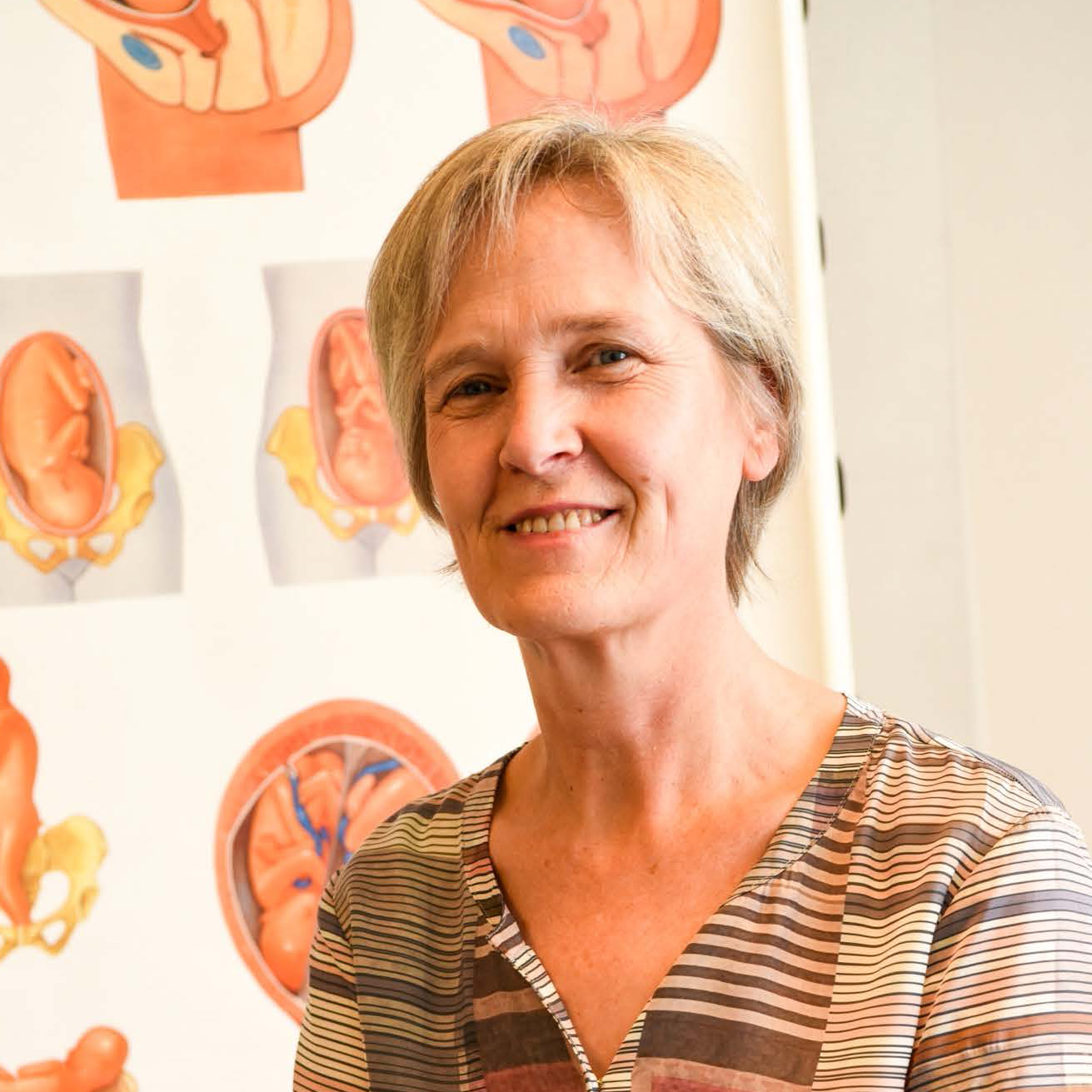
Marlene Reyns
Treasurer
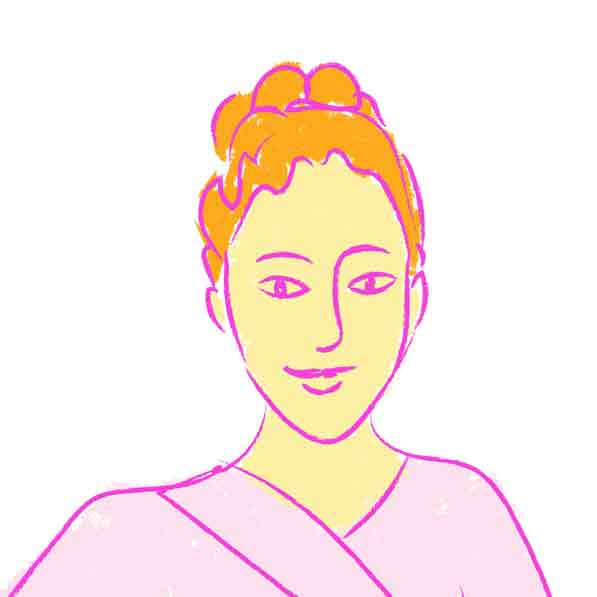
Geneviève Castiaux
Secretary
Collective intelligence facilitators and full members

Céline Van Vaerenbergh
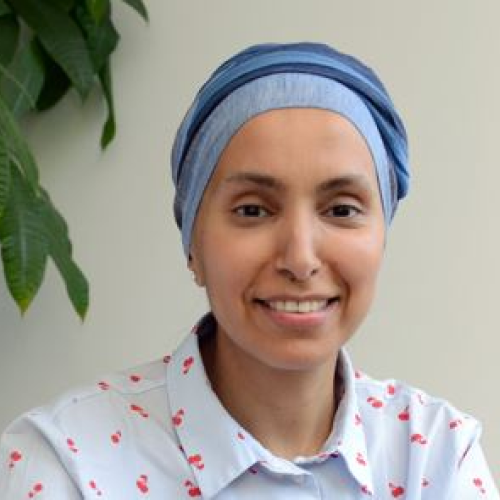
Hanan Ben Abdeslam
Full members

Serena Debonnet

Katelijne De Koster

Eva-Marie Edel

Dorien Lanssens
• Membership and mandates
Membership
Full members of the BMA are midwives or midwifery students who are members of a community association (UPSFB, VBOV, AFSFC) and who are committed to bringing the profession to life in unison at a national level and to raising the profile of the profession at an international level.
Applications for membership can be submitted to the BMA management board, together with a cover letter and a curriculum vitae. The BMA membership will have an equitable representation of community associations.
Mandates
The Board of Directors is elected by a majority vote at the General Assembly for a period of four years, renewable once.
Practical organisation
Full members meet four Saturday mornings a year for meetings which usually last three to four hours face-to-face or remotely, depending on health conditions. A General Assembly is held at least once a year, during which the adherent members, i.e. all members of the community associations, are welcome but do not have voting rights.
At the moment, the BMA operates on a purely voluntary basis. Our usual working language is English as well as the national languages.
.
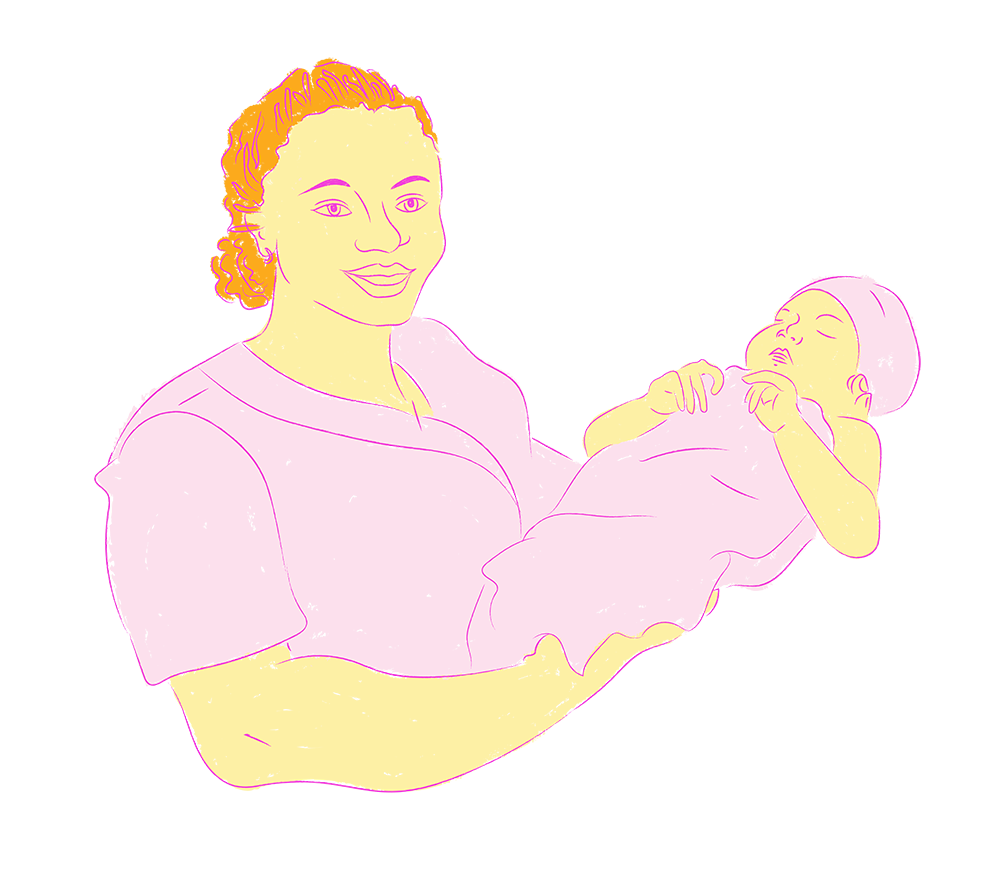
• Midwifery in Belgium and in the world as defined by the ICM
Definition of the midwife
A midwife is a person who has successfully completed a midwifery education programme that is based on the ICM Essential Competencies for Midwifery Practice and the framework of the ICM Global Standards for Midwifery Education and is recognized in the country where it is located; who has acquired the requisite qualifications to be registered and/or legally licensed to practice midwifery and use the title ‘midwife’; and who demonstrates competency in the practice of midwifery.
Scope of practice of the midwife
The midwife is recognised as a responsible and accountable professional who works in partnership with women to give the necessary support, care and advice during pregnancy, labour and the postpartum period, to conduct births on the midwife’s own responsibility and to provide care for the newborn and the infant. This care includes preventative measures, the promotion of normal birth, the detection of complications in mother and child, the accessing of medical care or other appropriate assistance and the carrying out of emergency measures.
The midwife has an important task in health counselling and education, not only for the woman, but also within the family and the community. This work should involve antenatal education and preparation for parenthood and may extend to women’s health, sexual or reproductive healthand child care.
A midwife may practise in any setting including the home, community, hospitals, clinics or health units.
Definition of midwifery
Midwifery is the profession of midwives, only midwives practise midwifery. It has a unique body of knowledge, skills and professional attitudes drawn from disciplines shared by other health professions such as science and sociology, but practised by midwives within a professional framework of autonomy, partnership, ethics and accountability.
Philosophy and model of midwifery care
Throughout the world midwifery has been practiced for centuries, and has features and characteristics that have evolved differently according to local or regional cultural and social traditions and knowledge. This document provides a universal, description of the philosophy and model of midwifery care, without compromising local or regional characteristics of midwifery care.

Bill of rights for women and midwives
The International Confederation of Midwives calls for governments globally to recognise and support accessible and effective midwifery care as a basic human right of all women, babies and midwives.
The issues for women around gender equity and access to education also extend to midwives as a woman-dominated profession. The Bill of Rights for Women and Midwives addresses those basic human rights of women and midwives that have been systematically denied and adds another framework to approach governments when demanding change to improve midwifery and maternity services.
International code of ethics for midwives
The code addresses the midwife’s ethical mandates in keeping with the Mission, the International definition of the Midwife, and standards of ICM to promote the health and well- being of women and newborns within their families and communities. Such care may encompass the reproductive life cycle of the woman from the pre-pregnancy stage right through to the menopause and to the end of life. These mandates include how midwives relate to others; how they practise midwifery; how they uphold professional responsibilities and duties; and how they are to work to assure the integrity of the profession of midwifery.
Midwifery in belgium as defined by the professional and competency profile of the Belgian midwife
In our healthcare systems, the midwife is the healthcare professional who practices the art of maieutics (medisch verloskundige zorg). The midwife cares for women during preconception, pregnancy, labor, delivery, postpartum and infancy, as the reproductive and perinatal process unfolds normally.
She independently performs clinical and obstetrical procedures, delivers babies and prescribes the necessary tests and medication. The midwife promotes, supports and accompanies breastfeeding.
The midwife detects possible physical, social and/or mental risks for the mother and child, and refers them if necessary to a doctor or other healthcare professional. In urgent cases, she performs the necessary medical procedures while waiting for specialized medical assistance.
In the event of pathology, the midwife intervenes in collaboration with and under the responsibility of a doctor.
The midwife is competent to carry out all the procedures necessary to the exercise of her profession, in all structures where her expertise is required.
For more information on your rights during pregnancy and childbirth, you can follow this link, which will give you information on the different care pathways during pregnancy, recent recommendations for good practice and legislative information on patients’ rights.

